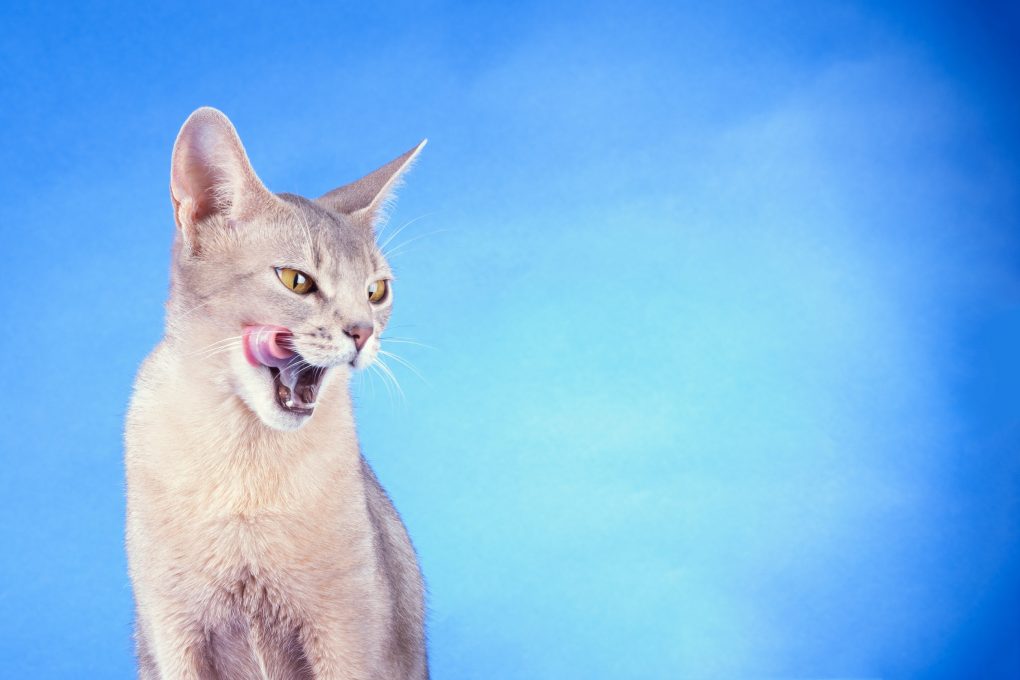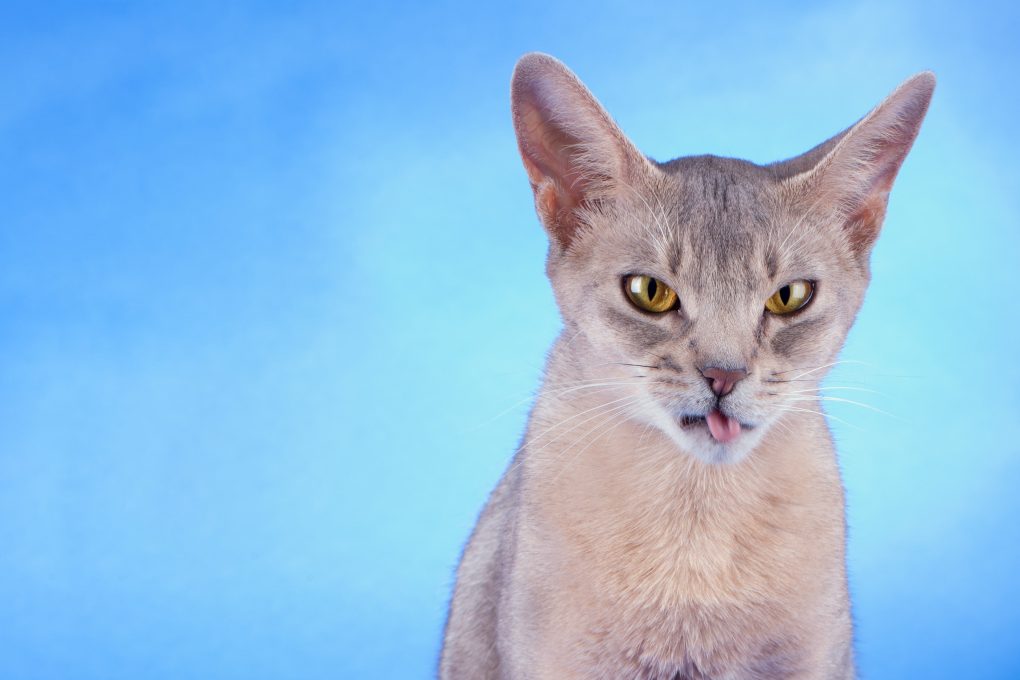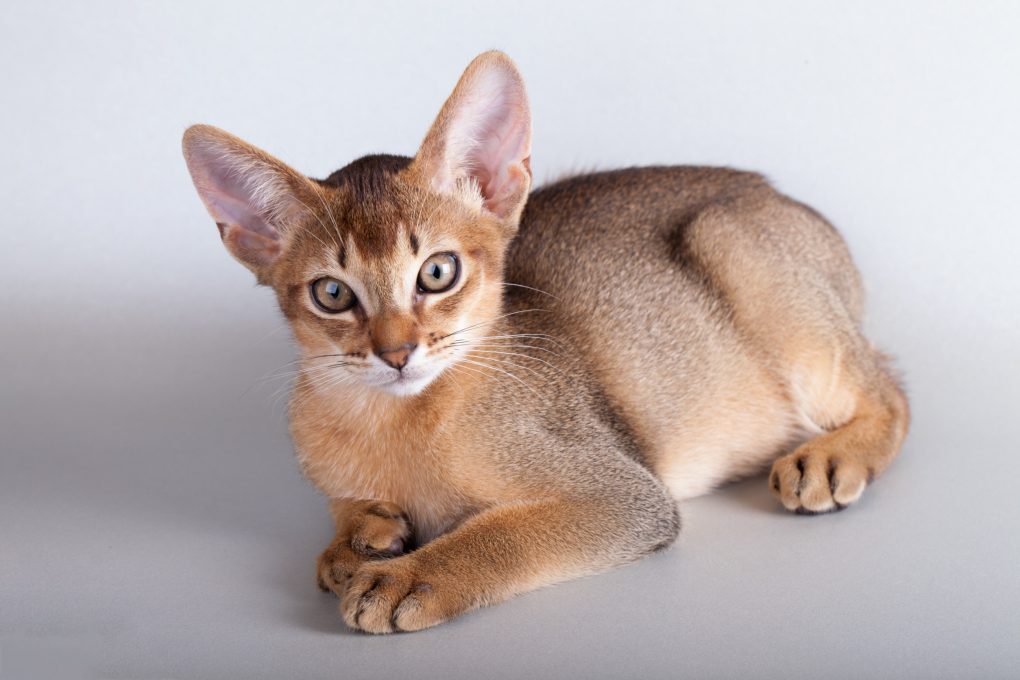Are Abyssinian Cats Aggressive: What You Need to Know About Abyssinian Cats
No, Abyssinian cats are not typically known for being aggressive. They are generally active, curious, and playful and are known for being social and affectionate with their owners. However, as with any animal, individual personalities can vary, and some Abyssinian cats may be more aggressive than others.
Table of Contents
Causes of Aggression in Cats
- Genetics: A cat with a genetic mutation that causes it to be more aggressive is called a “lethal gene.” These cats often have other strengths, like high energy levels or athleticism, but they are also more likely to be aggressive.


- Environment: According to Cornell University College of Veterinary Medicine, cats exposed to loud noises or bright lights may become more aggressive. This can happen when they are in a cat shelter or on cat videos and websites.
- Stress: Cats can become stressed when their owners leave them alone for long periods or when their owners change their routine, such as moving to another house. Cats can also become stressed by the presence of other cats or dogs.
- Disease: Feline panleukopenia virus (FPV), also known as feline parvovirus or feline distemper, is a highly contagious and potentially fatal disease that affects cats. While it is not common for infected cats to become aggressive, the virus may affect the cat’s neurological system and cause changes in behavior.
- Injury: Injuries sustained during fighting or accidents can cause aggression in cats. Sometimes, surgery to correct a medical problem also causes aggression in cats.
- Lack of socialization: Cats that have not been adequately socialized or exposed to different people and animals may become aggressive.
- Lack of proper training: Cats that have not been trained to respond to commands or cues may become aggressive.
- Past abuse or neglect: Cats that have been abused or neglected may have trust issues and become aggressive.
Abyssinian Cats and Their Biting Behavior
Abyssinian cats are not known to bite more than other cat breeds. However, as with any animal, individual personalities can vary, and some Abyssinian cats may have a higher tendency to bite than others.
Biting can be expected from cats, especially when playing or hunting. Still, it can also indicate an underlying issue, such as pain or discomfort, fear or anxiety, or a lack of socialization. For example, suppose a cat is biting excessively or aggressively. In that case, it is essential to consult a veterinarian or professional behaviorist to determine the underlying cause and develop an appropriate behavior modification plan.
Reasons Why Abyssinian Cats Bite


Being Overstimulated
Abyssinian cats are among the most popular breeds worldwide, but they can be aggressive when overstimulated. When a cat is overstimulated, it may start to bite out of fear or to assert its dominance. If you’re concerned about your cat’s aggression, overseeing them and ensuring they are safe and comfortable is essential.
Playfulness
Biting can be mild or severe, but it’s usually just a playful gesture. This can happen when a cat is playing or showing affection. So if you’re uncomfortable with your cat biting you, try different playtime activities to get them interested in you again. This will help keep the two of you engaged and happy while also preventing any bites from occurring.
Annoyed
Abyssinian cats can become irritated and bite when annoyed or trying to get your attention. If you’re worried about your cat biting you, keep a close eye on them and take appropriate steps if necessary. Abyssinian cats are usually gentle animals, but they can become defensive if they feel threatened.
Teething
Abyssinian cats are known for their sharp feline teeth. Teething is a natural process that most cats go through, and Abyssinian cats are no exception. Biting during this time can help the cat explore its world and develop its teeth. Therefore, it is vital to keep tabs on your cat’s behavior and ensure it doesn’t bite too much or too rigid.
Tips to Stop an Abyssinian Cat From Biting
Negative Reinforcement
To effectively stop an Abyssinian cat from biting, you must use a combination of positive and negative reinforcement. You can use these techniques to train your cat not to bite. To do this, provide the cat with something it wants that cannot be given away, such as a toy or treat. You can do this by rewarding the cat for not biting or by punishing the cat for biting.
This technique is effective in cat behavior modification because it reinforces good behavior and punishes bad behavior. Therefore, it is essential to be consistent with this technique to achieve results and ensure success. If you are inconsistent with the punishment or reward of biting behavior, it could lead to confusion in your cat, making it harder to stop biting over time.
Training
As the owner of an Abyssinian cat, you are responsible for ensuring your cat does not bite people or other animals. Reducing the chance of cat bites requires training and socialization efforts. Therefore, it is essential to gradually introduce your cat to people and other pets, starting with family members and friends. In addition, you can provide your cat with plenty of toys and playtime to help reduce the chance of them biting people.
If a cat bite occurs, resist any attempts by the cat to bite you. Instead, gently pat the cat away using your hand or a cloth such as a T-shirt. Sometimes, cats will only bite when they feel threatened or angry. In these cases, ignoring the cat may help reduce tensions between you.
Respect the Cat


When it comes to cat behavior, respect the cat and its territory. Do not pet the cat if it is not comfortable with being petted. Instead, play with the cat to show affection. If you feel the cat is showing aggression, stop feeding it.
Abyssinian cats are playful and affectionate cats that enjoy human interaction but may bite in self-defense if you ignore the tips in this article. If your cat has been aggressive toward you or others in your household, seek professional help from a cat behaviorist immediately.
Others
- Determine the underlying cause: Consult with a veterinarian or professional behaviorist to determine if there is an underlying medical or behavioral issue causing the biting behavior.
- Provide plenty of mental and physical stimulation: Abyssinian cats are known for their high energy and intelligence and require plenty of mental and physical stimulation to stay happy and healthy. Provide interactive toys, puzzle feeders, and plenty of playtimes to keep them engaged and stimulated.
- Redirect biting behavior: When your cat bites, immediately redirect their biting behavior to a toy or other appropriate item. This will teach them that biting is unacceptable and help them learn to use their teeth and claws on appropriate items.
- Provide an appropriate scratching surface: Cats that do not have access to appropriate scratching surfaces may resort to biting as a form of play or expression. Ensure your cat has plenty of scratching posts, perches, and other climbing structures to keep them active and occupied.
- Provide regular dental care: Regular teeth cleaning, providing appropriate dental chews or toys to keep their teeth clean, and regular check-ups with a veterinarian can help prevent biting and maintain your cat’s overall health.
